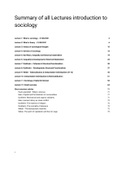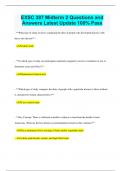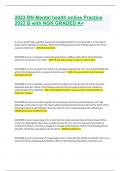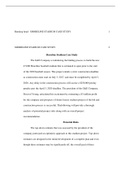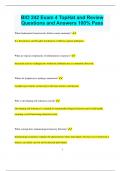Samenvatting
Summary All lectures Introduction to Sociology + brief overview articles
- Instelling
- Tilburg University (UVT)
This is an overview of all lectures introduction to sociology. This does not include the book from van Tubergen, it is only all sheets. It is written in English, and I also translated some words to Dutch here and there. Additionally, there is a small overview on the following articles: Paul Laze...
[Meer zien]
